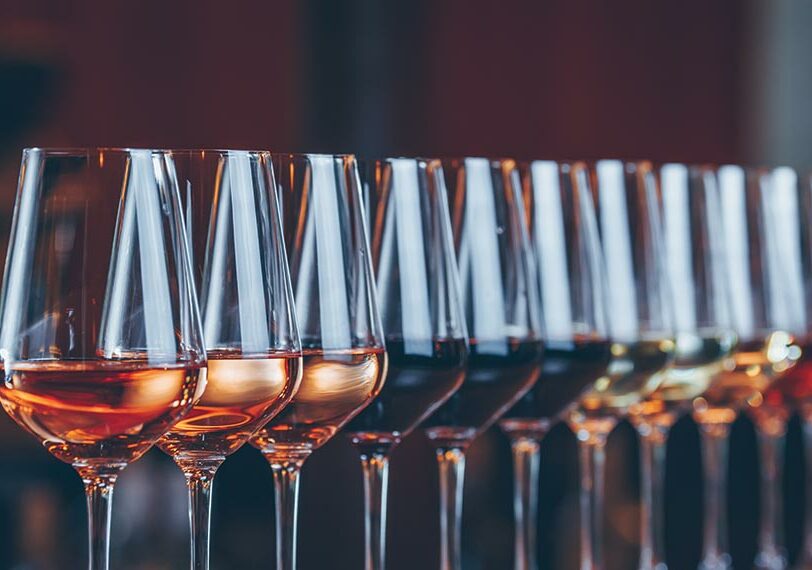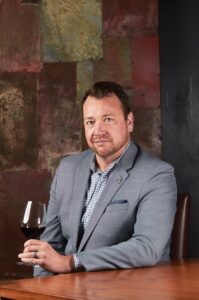

Ryan Robinson, Director of Education, Brescome Barton and Worldwide Wines.
Studying wine in an ever-changing world
By Ryan Robinson, Advanced Sommelier-CMS, WSET Diploma and WSET Educator
Appreciating wine can be as simple as opening up a new bottle. No fuss, no pretention, just enjoyment of someone’s liquid art. The act of studying wine takes a whole new level of commitment. Many have dedicated years of their lives preparing for higher-level wine exams, only to walk away empty-handed. Very few that have attempted achievement at the master level have found success.
There are two different organizations that claim the pinnacle of wine mastery: the Court of Master Sommeliers and the Institute of Masters of Wine. There are additional wine education organizations such as the Wine Scholar Guild, the Wine & Spirit Education Trust or the Society of Wine Educators, which all offer world-class education in the realm of beverage knowledge … however, the two master’s programs are undeniably the most prestigious and the most difficult to pass. To date, only 273 individuals have passed the Master Sommelier exam since its debut in 1977, while, conversely, 507 people in the world have passed the Master of Wine exam that was first given in 1953. Since that time, only three people in the world have passed both exams! You would be hard-pressed to find such dismal numbers in any other profession.
Why are these exams so difficult? The obvious answer is because of the breadth of knowledge needed to find success. It takes years of preparing, tasting, researching and compiling flash cards of the most minute beverage details. The Master Sommelier diploma focuses on any alcoholic beverage produced in the world, while the Master of Wine is hyper-focused on wine only. It takes anywhere from five to 10 years for an individual to fully prepare to take one of these exams. It’s overwhelming! The key aspect that most people do not realize is that the world of beverages is continually changing. What a student memorized last year could be obsolete by the time they reach their exam date. To put this into perspective, these are the recent changes that went into effect in 2024.
In the United States, every year, new American Viticultural Areas are approved by the Alcohol and Tobacco Tax and Trade Bureau, the government organization responsible for wine law. This year alone, there have been four new AVAs approved. The most recent—the Upper Cumberland American Viticultural Area—hails from Tennessee. Additionally, three new AVAs were approved in the state of California: Yucaipa Valley AVA in San Bernardino County, Comptche AVA in Mendocino County and Contra Costa AVA located in the East Bay area of the San Francisco Bay.
In addition to knowing the changes within the U.S., a successful candidate needs to have a global perspective. In 2024, these appellation additions are in no shortage. The majority come from Spain, which is encouraging to see as their wine industry grows at such a rapid rate. Here is a snapshot of those changes: The Yecla DO has approved the use of Viognier in white wines, a new Vino de Pago was approved for Rosalejo and a new appellation, Campo de Calatrava DO within Castilla-La Mancha, was approved. France and Italy have also implemented additional wine law changes in 2024.
The newest change that I am most excited about within the European Union is the passing of the new wine labelling laws. Technically, this was approved on Dec. 8, 2023, but it will apply to all wine produced in the EU in 2024. To paraphrase, all wine released must contain both the nutritional value and the ingredients used during production (i.e., the complete list of additives, if used, must be included on the label). It will be interesting to see how the U.S. wine industry reacts.
These changes are the equivalent of moving goalposts and aid in the difficulty of passing one of the master-level wine exams. They highlight just one of the many obstacles that a student of wine must overcome to achieve mastery.
Ryan Robinson is the Director of Education for Brescome Barton and Worldwide Wines in Connecticut. He is also the Wine Director for Cornerstone Restaurant Group in North America and South Korea, and an Adjunct Professor at the University of New Haven. He holds the credentials of Advanced Sommelier-CMS; WSET Diploma and WSET Educator in Wine, Sake and Beer; Rioja Wine Educator; Wine Scholar Guild Educator and Spanish Wine Specialist; and Certified Scotch Whisky Professional from the Council of Whiskey Masters.



